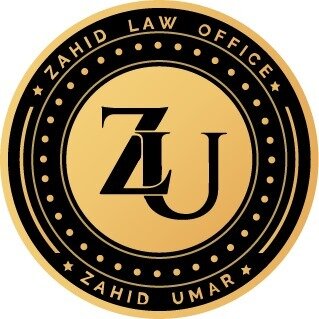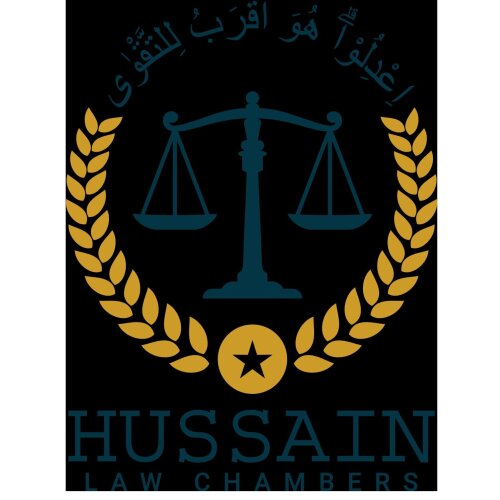Best Military Law Lawyers in Lahore
Share your needs with us, get contacted by law firms.
Free. Takes 2 min.
List of the best lawyers in Lahore, Pakistan
About Military Law in Lahore, Pakistan
Military law in Lahore, Pakistan, is a specialized legal domain that governs members of the armed forces. This branch of law is distinct from civilian legal systems and is designed to maintain discipline, order, and efficiency within the military. It encompasses a wide range of issues, including discipline, conduct during service, and any offenses that members of the military may commit. The Pakistan Armed Forces, guided by legal frameworks like the Army Act, 1952, have jurisdiction to govern military personnel. Lahore, being a significant city in Pakistan, hosts several military institutions, making the understanding of military law crucial for those serving or connected to the armed forces.
Why You May Need a Lawyer
Seeking legal advice under military law can be necessary for a variety of reasons. Common situations include:
- Facing Court-Martial: Military personnel accused of violating military laws may face court-martial proceedings.
- Disputes Over Discharge: Issues related to the nature and characterization of discharge from service.
- Service Member’s Rights: Understanding rights during active duty, including rights during arrest or detention.
- Military Benefit Claims: Legal disputes over military pensions, medical benefits, or compensations.
- Military Offenses: Charges of desertion, insubordination, or other military-specific offenses.
In such cases, experienced legal counsel can help navigate the complex military judicial system effectively.
Local Laws Overview
Military law in Lahore is largely governed by national statutes relevant to the entire country of Pakistan. Key aspects include:
- The Army Act, 1952: This act is the principal legislative document governing the conduct, offenses, and disciplinary procedures of the Pakistan Army personnel.
- The Pakistan Navy Ordinance, 1961: Governs similar situations for Pakistan Navy personnel.
- The Pakistan Air Force Act, 1953: Designed for the Air Force, covering issues specific to air personnel.
- Rules of Procedure: Guidelines detailing processes for legal proceedings within military courts.
- Military Court System: Composed of summary, district, and field general court-martials, each with specific jurisdictions and powers.
Frequently Asked Questions
What is the difference between military law and civilian law?
Military law specifically governs military personnel and includes specialized rules and offenses not applicable to civilians. Its purpose is to maintain order and discipline within the armed forces.
Who is subject to military law in Lahore, Pakistan?
All persons serving in the Pakistan Army, Navy, and Air Force, including reservists and sometimes, civilians attached to military operations, are subject to military law.
What are the possible outcomes of a court-martial?
Penalties can range from reprimands to imprisonment or even dismissal from service, depending on the severity of the offense.
Can military personnel appeal court-martial decisions?
Yes, there are established channels for appealing decisions from court-martials, through higher military courts or sometimes civilian courts.
What legal rights do military personnel have during a trial?
Military personnel have rights similar to civilian legal rights, including the right to a defense lawyer, the right to a fair trial, and the right to appeal.
How are family issues addressed under military law?
Issues like separation, divorce, and child custody involving military personnel may involve both military and civilian jurisdictions, depending on the nature of the case.
What is AWOL and its consequences under military law?
AWOL stands for 'Absent Without Leave' and is a serious offense that can lead to court-martial and penalties like imprisonment or discharge.
Are there support systems for military law offenders?
The military does provide certain counseling services and legal aid to ensure fair treatment during legal proceedings.
Can civilian lawyers represent military personnel in military courts?
Yes, civilian lawyers can represent military personnel, but they need to be well-versed in military law procedures and norms.
How can families of military personnel access legal help?
Families can contact military legal aid offices or civilian lawyers specializing in military law to get advice and representation.
Additional Resources
For those seeking more information and assistance, consider contacting the following resources:
- The Judge Advocate General’s Office: Provides legal assistance to military personnel.
- The Pakistan Legal Aid Office: Offers free or low-cost legal aid services, potentially including cases under military law.
- Veteran's Affairs Department: A resource for military benefits and rights.
Next Steps
If you require legal assistance in military law, consider the following steps:
- Consult with a legal professional specializing in military law to understand your case and rights.
- Gather all relevant documents and evidence related to your case.
- Contact or visit the Judge Advocate General’s Office to get initial guidance if you’re in active duty.
- Seek advice on appeals or legal strategies, if facing court-martial proceedings.
Remember, navigating military law can be complex, and it is advisable to seek professional legal assistance to effectively manage your situation.
Lawzana helps you find the best lawyers and law firms in Lahore through a curated and pre-screened list of qualified legal professionals. Our platform offers rankings and detailed profiles of attorneys and law firms, allowing you to compare based on practice areas, including Military Law, experience, and client feedback.
Each profile includes a description of the firm's areas of practice, client reviews, team members and partners, year of establishment, spoken languages, office locations, contact information, social media presence, and any published articles or resources. Most firms on our platform speak English and are experienced in both local and international legal matters.
Get a quote from top-rated law firms in Lahore, Pakistan — quickly, securely, and without unnecessary hassle.
Disclaimer:
The information provided on this page is for general informational purposes only and does not constitute legal advice. While we strive to ensure the accuracy and relevance of the content, legal information may change over time, and interpretations of the law can vary. You should always consult with a qualified legal professional for advice specific to your situation.
We disclaim all liability for actions taken or not taken based on the content of this page. If you believe any information is incorrect or outdated, please contact us, and we will review and update it where appropriate.

















